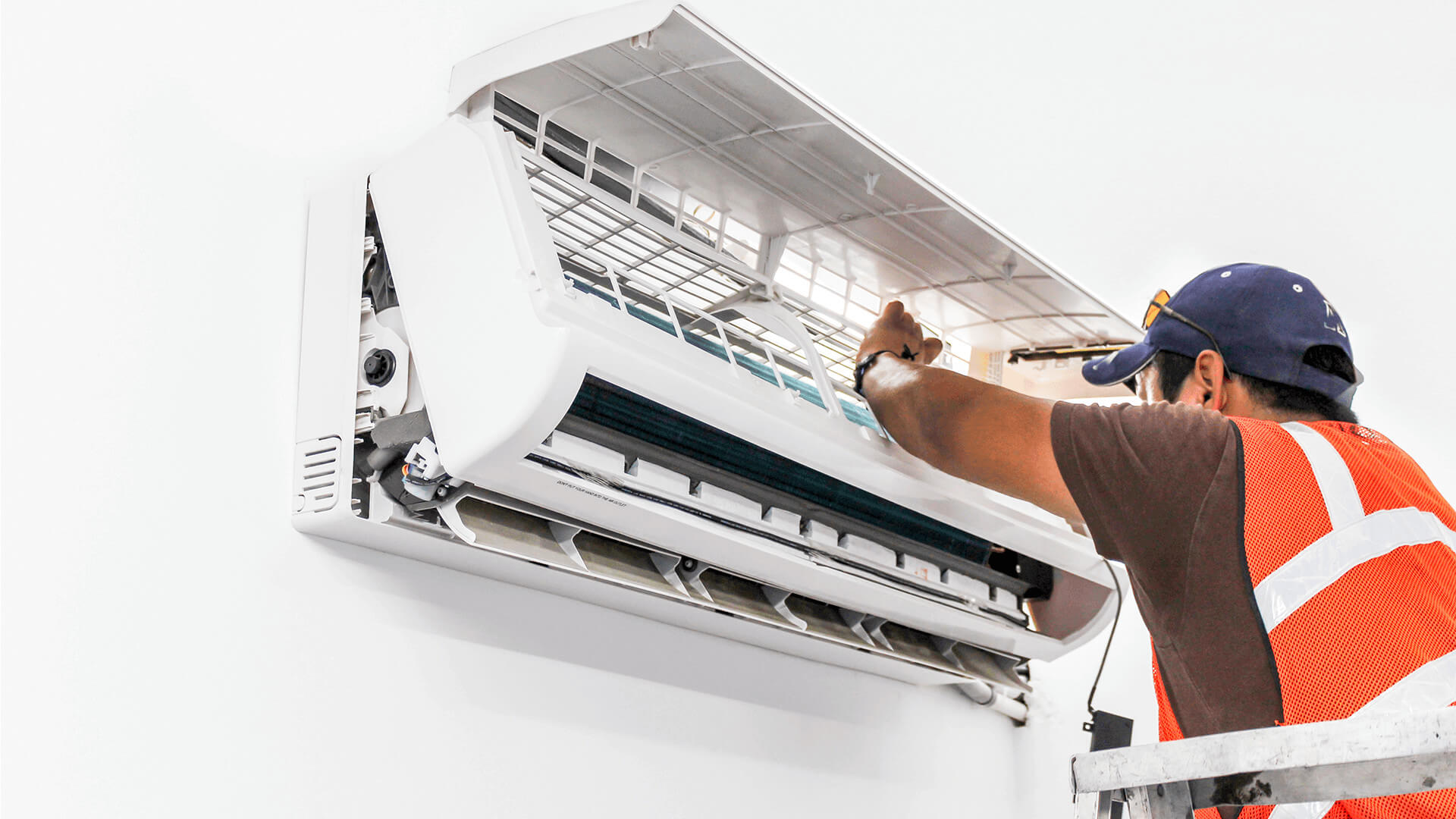How Cooling Improves Comfort and Air Top Quality in your house
The combination of air conditioning systems in household settings plays a critical role in improving both convenience and air high quality. The effects of air conditioning extend beyond plain convenience; they touch on energy effectiveness and total health.
Benefits of Cooling
Air conditioning provides many benefits that prolong beyond simple comfort, substantially improving indoor atmospheres. Air conditioning systems filter and distribute indoor air, eliminating dust, allergens, and pollutants, therefore contributing to a healthier living space.
Additionally, cooling plays a critical role in moisture control. Too much moisture can cause mold growth and structural damage, while air conditioning systems help keep optimum moisture levels. This not only shields home but also boosts convenience by decreasing the clamminess typically connected with high humidity.
Power effectiveness is another essential advantage. Modern a/c units are designed to run much more efficiently than older versions, minimizing energy intake and reducing utility costs. Programmable thermostats enable users to enhance cooling timetables, guaranteeing that power is used deliberately.
Finally, air conditioning contributes to increased efficiency. Air Conditioning Brisbane. In workplaces, a regulated climate can improve emphasis and effectiveness, emphasizing the significance of cooling in both domestic and business settings
Exactly How Cooling Improves Convenience
Boosted comfort in interior settings is one of one of the most substantial advantages supplied by cooling systems. These systems efficiently control indoor temperatures, guaranteeing a consistently positive atmosphere regardless of outside climate condition. By maintaining a steady temperature, cooling allows passengers to participate in daily activities without the discomfort usually caused by extreme warm or moisture.
In addition, air conditioning systems add to enhanced sleep high quality. A cooler setting is helpful to better sleep, as it helps lower the body's core temperature, signaling that it is time to rest. This is especially vital during the warmer months when heats can disrupt sleep patterns.
Additionally, contemporary air conditioning units often come geared up with programmable thermostats, allowing individuals to customize their comfort levels according to individual choices and timetables - Air Conditioning Brisbane. This adaptability not just improves comfort however likewise promotes power performance, as systems can be established to run only when needed

Enhancing Indoor Air Top Quality
A significant advantage of air conditioning systems is their capacity to enhance interior air top quality. By distributing and filtering system air, these systems remove air-borne pollutants, irritants, and impurities, resulting in a much healthier living environment. High-efficiency particulate air (HEPA) filters, generally used in contemporary cooling units, properly capture dirt, plant pollen, mold and mildew spores, and family pet dander, thus lowering the presence of toxic irritants that can exacerbate breathing concerns and allergies.
Additionally, cooling systems can help reduce the impacts of exterior pollution. By maintaining a closed indoor atmosphere, they restrict the increase of exterior allergens and particulate matter. This is especially valuable for individuals with asthma or other respiratory conditions, as enhanced air high quality can add to far better wellness end results.
Additionally, some advanced air conditioning models come geared up with ultraviolet (UV) light innovation, which even more cleanses the air by reducing the effects of germs and viruses. Routine maintenance of these systems, including filter substitute and cleansing, is important to make certain optimum efficiency and air top quality. Generally, the function of a/c in improving indoor air quality can not be overstated, making it an important component of modern home convenience.
Taking Care Of Moisture Levels
Effective monitoring of moisture degrees is important for preserving a comfortable and healthy and balanced interior atmosphere. High humidity can lead to pain, advertising a feeling of dampness and making it tough for the body to control its temperature. This problem can likewise produce a perfect breeding ground for mold and mildew, dust mites, and various other allergens, inevitably affecting indoor air top quality.
Air conditioning systems play a considerable duty in controling moisture. By cooling the air, they additionally dehumidify it, removing excess moisture as the air passes over cool evaporator coils.
In addition to a/c, utilizing dehumidifiers can additionally assist in handling moisture levels, especially in locations prone to excess wetness, such as basements or restrooms. Normal upkeep of air conditioning systems, consisting of cleansing and replacing filters, can improve their performance in moisture control. By successfully taking care of humidity, house owners can develop a more enjoyable space while minimizing health and wellness threats linked with poor indoor air high quality.
Power Performance and Sustainability
Air conditioning systems' energy effectiveness is progressively critical in today's environmentally mindful society. As Going Here families look for to lower their carbon footprints, the demand for energy-efficient air conditioning units has surged. These systems are created to make use of much less power while keeping optimum interior convenience, therefore lowering utility costs and decreasing ecological impact.
Technical innovations have actually brought about the growth of high-efficiency designs that utilize eco-friendly cooling agents and advanced heat exchange procedures - Air Conditioning Brisbane. Solutions with higher Seasonal Power Performance Ratios (SEER) and Energy Efficiency Ratios (EER) not just do much better but additionally add to a sustainable future discover here by lowering greenhouse gas discharges
Additionally, incorporating wise technology right into a/c systems allows for even more exact temperature control and power administration. Homeowners can readjust settings from another location, enabling them to optimize power usage and minimize waste.
In addition, routine upkeep and correct setup are vital for making certain that air conditioning devices operate at peak performance. This commitment to power efficiency not only enhances the durability of the system yet likewise straightens with broader sustainability objectives, ultimately profiting both the specific property owner and the setting.
Conclusion
